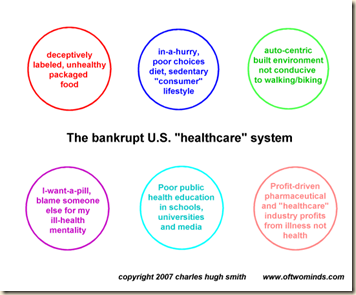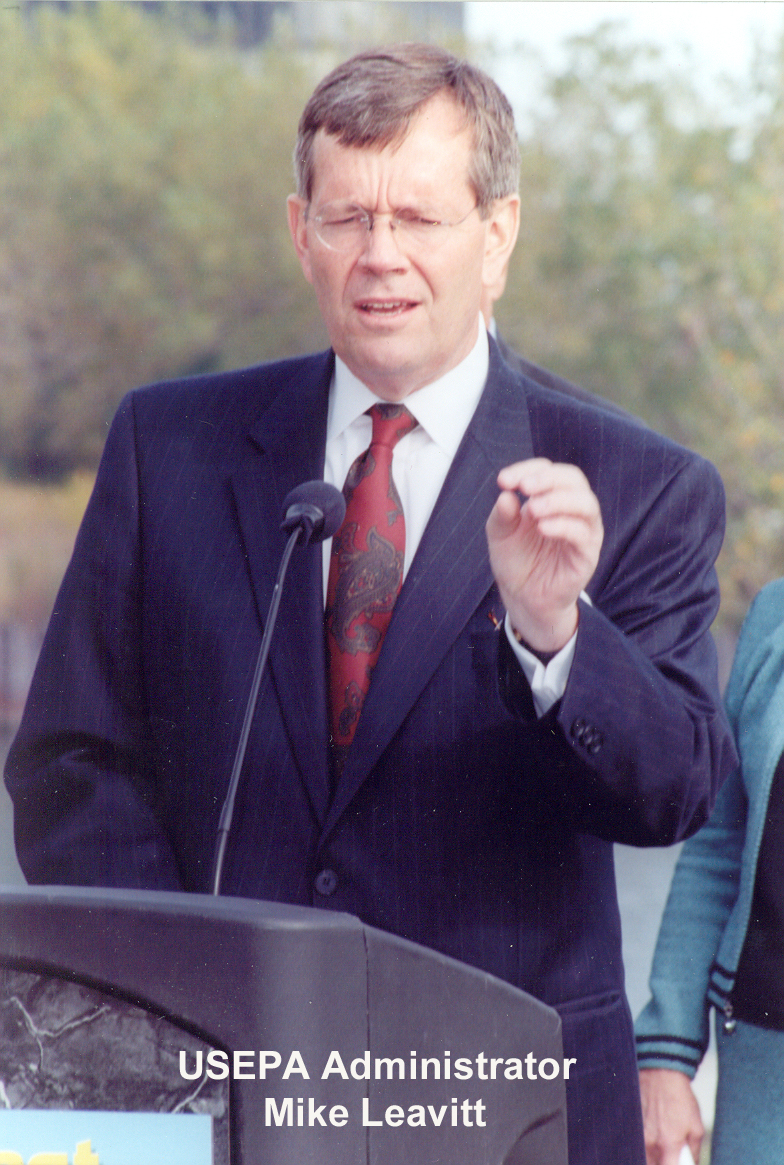The results of my survey on Sermo have just been released.
I am posting the question and the results here
QUESTION: IF OBAMA WINS THE ELECTION WHAT WILL BE THE RESULTS IN TERMS OF HEALTH CARE CHANGES??
ANSWERS"
If Obama wins Tuesday, I think Wednesday I'll get up, take my kids to school, go to work, come home, have a beer with my wife and soak in the hot tub. Get over yourselves, people, you sound like a bunch of Nostradamus wannabees.
8%
(3/36)
No
6%
(2/36)

Be afraid, be very afraid.
6%
(2/36)

All those anti-Obama doctors will be investigated by Medicare and the IRS. BestGuess will be Secretary of Health and Human Services.
3%
(1/36)

I will be very sad.
3%
(1/36)

STOP already!
3%
(1/36)
 Answer added by respondent
Answer added by respondent


View full results for this posting
Select your answer:
1.
Yes
Yes
2.
No
No
3.
It will mean the end of free markets and democracy as we know it................
It will mean the end of free markets and democracy as we know it................
4.
All those anti-Obama doctors will be investigated by Medicare and the IRS. BestGuess will be Secretary of Health and Human Services.
All those anti-Obama doctors will be investigated by Medicare and the IRS. BestGuess will be Secretary of Health and Human Services.
5.
November 5th and further will be just fine...nothing changes that dramatically in the US with the election of one person.
November 5th and further will be just fine...nothing changes that dramatically in the US with the election of one person.
6.
Expect more bread and circuses, and massive federal deficits as far as the eye can see.
Expect more bread and circuses, and massive federal deficits as far as the eye can see.
7.
If Obama wins Tuesday, I think Wednesday I'll get up, take my kids to school, go to work, come home, have a beer with my wife and soak in the hot tub. Get over yourselves, people, you sound like a bunch of Nostradamus wannabees.
If Obama wins Tuesday, I think Wednesday I'll get up, take my kids to school, go to work, come home, have a beer with my wife and soak in the hot tub. Get over yourselves, people, you sound like a bunch of Nostradamus wannabees.
8.
Be afraid, be very afraid.
Be afraid, be very afraid.
9.
Whether he wins or loses, Sermo will be a better place without all these biased opinionated political posts.
Whether he wins or loses, Sermo will be a better place without all these biased opinionated political posts.
10.
I will be very sad.
I will be very sad.
11.
STOP already!
STOP already!
12.
I'd like to add my own answer
Enter your answer here
![Click here for information on this opportunity.]()
I'm not interested
![Click here for information on this opportunity.]()
I'm not interested
Why rate a posting?
Your ratings history is used to determine which postings get recommended to you. The more postings you rate, the more valuable these recommendations will be. It's an easy way to ensure that you see the content most important to you on Sermo.
Close
What if Obama wins?
For the sake of argument, imagine (and you may not have to) on Tuesday Obama is elected. Do you think he has the ability to transform free market capitalism into limited sociallism affecting only the healtcare sector, without major disruption to the industry?
Do you think the congress will approve what he wants. How will business react to his proposed changes.
Does his election really reflect the desire to transform health care into a socialized universal payor system, or a reaction to the last 8 years? Is this a move for making things better, or just a knee jerk reaction to CHANGE?
![Click here for information on this opportunity.]()
I'm not interested
Tags
business, capitalism, free market, payor, socialized, universal
Category: Politics & Reform




Posting ID: 28747
 Posted on November 02, 2008 by gmlevinmd123
Posted on November 02, 2008 by gmlevinmd123
View most recent
 Comments (25)
Comments (25)
25
Whatagas Anesthesiology
Posted Nov 02, 2008 at 3:33 PM
His election has much less to do with the general public's desire to change healthcare and almost everything to do with the notion that George Bush, and by extension, the republicans, have driven America in a direction where the world hates us, we can no longer have reasonable (i.e. non-polarized) debate on important issues, we are ignoring the biggest threat to the planet's existence (global warming) since that big meteor 65 million years ago, we are reigniting the crusades, and we are ignoring the plight of the 1/3 of the world's population that lives in abject poverty, all while throwing away our own future for the sake of next quarter's earnings.
Obama represents, rightly or wrongly, a return to the premise that Americans are fair, reasonable, charitable people who want to succeed by virtue of competition, not brute force. The fact that he intends to socialize and possibly destroy health care is a secondary concern.
davids1959 Psychiatry
Posted Nov 02, 2008 at 3:34 PM
Voters are not making their decisions on the candidates health care policies. That said Obama is not advocating, "transform free market capitalism into limited sociallism affecting only the healtcare sector." He is proposing universal axis to care.
www.barackobama.com
sflyn1 Ophthalmology
Edited Nov 02, 2008 at 3:42 PM
I think these discussions would be both more productive and less tense if we refrained from using emotionally-charged words such as 'socialism' when framing the debate.
nsmurali Gastroenterology
Edited Nov 02, 2008 at 3:50 PM
The problems facing us are so grave that neither candidate has proposed solid solutions. Their talking points were prepared 2 years ago and they had no clue of the looming economic crisis. My guess is we will have some kind of a "Medicaid for all" type of catastrophic coverage and the rest of the stuff will take a back seat. Unless the connection between jobs and healthcare insurance is severed, it is unlikely that US can create well paying jobs. We will see more under $100K/year jobs leaving the country for more competitive markets. . All along the lobbyists were very powerful. Now these insurance companies have been weakened, the American industries have been mortally wounded. In the same context, if solution(s) to the healthcare inequities are not found this time around, we probably will never have an economically viable healthcare system in this country.
It is too simplistic to say Obama is trying to spread the wealth. That is pure nonsense. No one has any answers. One thing for sure. If we go on like this, we will not have to spend any more money on a national security force as the US will no longer be attractive to anyone including the terrorists!
suvarov Internal Medicine
Posted Nov 02, 2008 at 4:34 PM
"Socialism" is no more charged than, say "capitalism", which is to say, not at all.
And almost no voters are paying attention to either candidate on healthcare. That isn't what this election is about.
epector Family Medicine
Posted Nov 02, 2008 at 4:36 PM
Agree with sflyn1. Avoid terms like "capitalist," "free market" (a joke because for physicians there IS no free market. Payers, patients, employers, & govt hold us hostage and we play by others' rules, we are not free!), "socialist" (what exactly is this? Communism, fascism, government regulation, government payment?). Another loaded, confusing terms: access (and Davids1959, I think "access to insurance" is what has largely been debated, not access to CARE.). I think most of us favor reducing health care disparities that are identifiable based on economic condition, race, gender, or age; but we can likely never eradicate maldistribution of physician workforce or specialties, "the poor ye have always with you," and all countries have a system the wealthier can access independently of a govt-run system.
What I hope may come from my own miniscule efforts, and all intelligent discussions of health care reform, is to FIRST identify problems, THEN identify possible solutions, WITHOUT labels or ideology getting in the way. IMHO, ideology has been part of the difficulty the last 8 years.
What will happen if Obama is elected? The sun will rise on Wednesday, he will take office in January, study many issues for 6 to 9 months, develop some agenda items, Congress will debate them for another year, and maybe about 2011 we will see something resembling "change," and coherent programs and processes. Then Obama will begin his reelection campaign, and the Congress will need to be the ones carrying the torch for meaningful health reform. We "little people" need to keep applying pressure throughout this period, regardless of who assumes office in January. A vigorous leader is only one part of the solution. We are also part...and must stay vocal!
c130nav Anesthesiology
Posted Nov 02, 2008 at 4:51 PM
If Obama is elected and the democrats obtain a super majority in Congress, I think you will see a number of changes within 6 months.
Listen to Barney Frank lately? Already making plans.
c130nav Anesthesiology
Posted Nov 02, 2008 at 4:53 PM
Recent bumper sticker :
Your wallet . . . the only place where Democrats want to drill.
sayaah Otolaryngology
Posted Nov 02, 2008 at 5:19 PM
First, Obama is first and foremost a politician and probably smart enough to know better to lead more from the middle than the extremes.
Second, the economy is going to put a damper on most big spending programs and probable tax hikes for a while.
Third, neither Onama or Congress - Reid, Pelosi, Frank, Conyers, Schummer, Kennedy - are going to sit idly by and let the other determine what is going to happen.
Fourth, in 2006 many of the Democrats winning were moderates and conservatives and will not go along with far left proposals. Will have to see who is elected now.
Fifth, there is no doubt the pendulum will swing back to the left, after Reagan and Bush 43. Remember Clinton, after the Hillary's health care fiasco, governed from the middle. Under Bush 43 the pendulum went far to pro corporate side - Bush was not a compassionate conservative as he said, but a corporate conservative.
Very likely Washington will become more liberal than it has been but not as much as many fear and not as much as some would hope.
For the decades the Democrats controlled Congress it was controlled by a coalition of northern liberals and southern conservatives and the southerners being re-elected more, had the positions of power. so it was not a liberal Congress. In 1964 with LBJ's landslide the Democrats had a super majority and LBJ had great difficulty getting the civil rights legislation passed because of the southerners, many Democrats, filibustering.
There is an old saying that when the Democrats form a firing squad that they form a circle. I doubt if that has changed.
healdoc Family Medicine
Edited Nov 02, 2008 at 5:24 PM
maldistribution of doctors, not enough general doctors, not enough med schools, these are some of the problems,
maybe some specialists should do part time general practice, maybe just 10% of their practice
we rely too much on foreign doctors
rarmstrong Surgery, General
Posted Nov 02, 2008 at 6:38 PM
I believe that epector is correct. The realities of an Obama presidency will not resemble the campaign rhetoric. The realities of sitting at the desk in the Oval office will be sobering. There will be some changes and policy shifts, there will be impassioned speeches on the Senate floor...and then the standard business of government will proceed...slowly, as it always has. Business and industry will continue to function. The war in Iraq will quiet down as it already is doing. We will negotiate for a permanent military presence in Iraq, similar to Germany and Korea, which is what John McCain has been referring to all along. Health care, for us, won't change much, but there will be more regulation.
sflyn1 Ophthalmology
Posted Nov 02, 2008 at 6:44 PM
epector writes:
<What I hope may come from my own miniscule efforts, and all intelligent discussions of health care reform, is to FIRST identify problems, THEN identify possible solutions, WITHOUT labels or ideology getting in the way. IMHO, ideology has been part of the difficulty the last 8 years. >
A breath of fresh air. Amen.
arcmdface Endocrinology
Posted Nov 02, 2008 at 7:02 PM
Agree with nsmurali. I would like to add that it was the super-strong Unions that mortally wounded the big 3 carmakers (part of which were the unsustainable costs of labor contracts). Obama will encourage a resurgance of that leading to more jobs migrating out of the country. McCain on the other hand is going to squeeze more out of Medicare with more RACs. etc. I still p/o ed about him not voting for the Medicare bill this summer.
Neither of the candidates has even a slightest of ideas about curing the ills of the health care situation. The system has to be either a completely capitalistic one or completely socialistic. This current situation is not sustainable.
rarmstrong Surgery, General
Posted Nov 02, 2008 at 7:13 PM
We have a very mixed system currently, neither capitalist or socialist, that has existed for a long time. It has been tweaked, squeezed and played with for years, and this has resulted in what we have today...a mess. Changing it is a political nightmare, for anyone, from any party. It is likely to hobble along, crippled by waste and excess, for many more years, as the party in power takes credit for very, very small changes(improvements).
edwestrfld Anesthesiology
Posted Nov 02, 2008 at 7:52 PM
Arizona is going to be an interesting test case, as we are getting ready to pass an amendment to the state constitution that would forbid any entity, government, or otherwise from restricting or abridging your freedom to choose who you want providing your health care and how you pay for it.
BestGuess Psychiatry
Posted Nov 02, 2008 at 8:05 PM
Obama iis not advocating socialism. Whatever gave you that idea?
daverey60 Family Medicine
Posted Nov 02, 2008 at 8:10 PM
There is more to life than Medicine. Yes, we are deep in it, and are sustained (or demolished) by it. Healthcare reform is not the only issue here, and as fate would have it, no one candidate has the "cure-all" for all our ails. There had never been a candidate that had all the answers- not before, not now, not ever. I think it is quite clear that we can not see a perfect president. If we want one, or try to push for one, we are as at fault as our patients and the lawyers who try to assume we're all infallible as physicians.
I agree with epector that choosing a president is just the start. Change in this system is slow. We are all trying to move a mountain, figuratively speaking. It takes time. It may even take a few terms if we want change.
God help us (sorry to "offend" the atheists among us).
cazzon Family Medicine
Posted Nov 02, 2008 at 10:03 PM
After eight years of an A'ho, we'll now get to try B'HO. But if he sells out to lobbyists, you can just call him ho'.
dmmmd1 Gastroenterology
Posted Nov 02, 2008 at 10:17 PM
<<Obama iis not advocating socialism. Whatever gave you that idea?>>
His own words. Most popular, his unrehearsed explanation to the plumber, of why he wanted to spread the man's wealth around. The implication being that although the man would have worked hard for his money, there were others who needed it more.
"From each according to his ability, to each according to his needs." Socialism, pure and simple.
sflyn1 Ophthalmology
Posted Nov 02, 2008 at 10:29 PM
<"From each according to his ability, to each according to his needs." Socialism, pure and simple. >
Uh, no. That's communism. "To each according to their contribution" is socialism.
en.wikipedia.org
c130nav Anesthesiology
Posted Nov 02, 2008 at 10:43 PM
So, Obama is advocating communism ?!
sflyn1 Ophthalmology
Posted Nov 02, 2008 at 10:54 PM
That's right, c130. Obama is advocating communism.
bzaneh Emergency Medicine
Posted Nov 02, 2008 at 11:13 PM
The problem is he is not going far enough to socialize medicine. He backed away from a one-payer system to everyone with a job has to buy insurance. The insurance companies will still rule. We either need to go to an insurance-less system where everyone pays out of pocket or negotiates a payment scheme with each provider; or a system where everyone is covered for a set list of medical events and diseases and the government pays all without denial of care or denial of reimbursement. The problem with the later is that it will cost us 30% to 40 % tax on every dollar you earn.
cazzon Family Medicine
Posted Nov 03, 2008 at 9:54 AM
Tax hikes during a recession are a disastrous idea. Will B'HO's admin emulate the Jimmy Carter years, or the FDR years?
The question you should ask is, what if McCain wins? That is a scary thought. If there aren't riots in the streets by the "disenfranchised", you can bet the ballots will be tied up in the courts for weeks. And that would be just as disastrous.
nsmurali Gastroenterology
Posted Nov 03, 2008 at 11:34 AM
It is a matter of demand and supply. As far as medical services are concerned I anticipate a very steep drop( as much as 50%) from current rates for everything--procedures to drugs. ...American industry is fighting for its life. We have such a defunct education system that employable grads will not be coming forth for two decades even if we were to make drastic changes today. One glimmer of hope.., the best and brightest will enter manufacturing area ans hopefully the sciences instead of going to wallstreet.
View oldest
Add your comment

Average Rating: Not yet rated  (20)
(20)
 Email This Posting
Email This Posting  Mark as Favorite
Mark as Favorite
Copyright © Sermo™ 2008 All Rights Reserved | Contact | Privacy Policy | Terms of Service | Code of Conduct
MeSH data created, maintained and provided by the U.S. National Library of Medicine. MeSH version "2006 MeSH".




























 The trade group America’s Health Insurance Plans, or AHIP,
The trade group America’s Health Insurance Plans, or AHIP, 




+and+Royal+Australian+Navy+ship+HMAS+Sirius+(O-266)+perform+a+replenishment+at+sea.+.jpg)










 Idea Man
Idea Man










 Email This Posting
Email This Posting